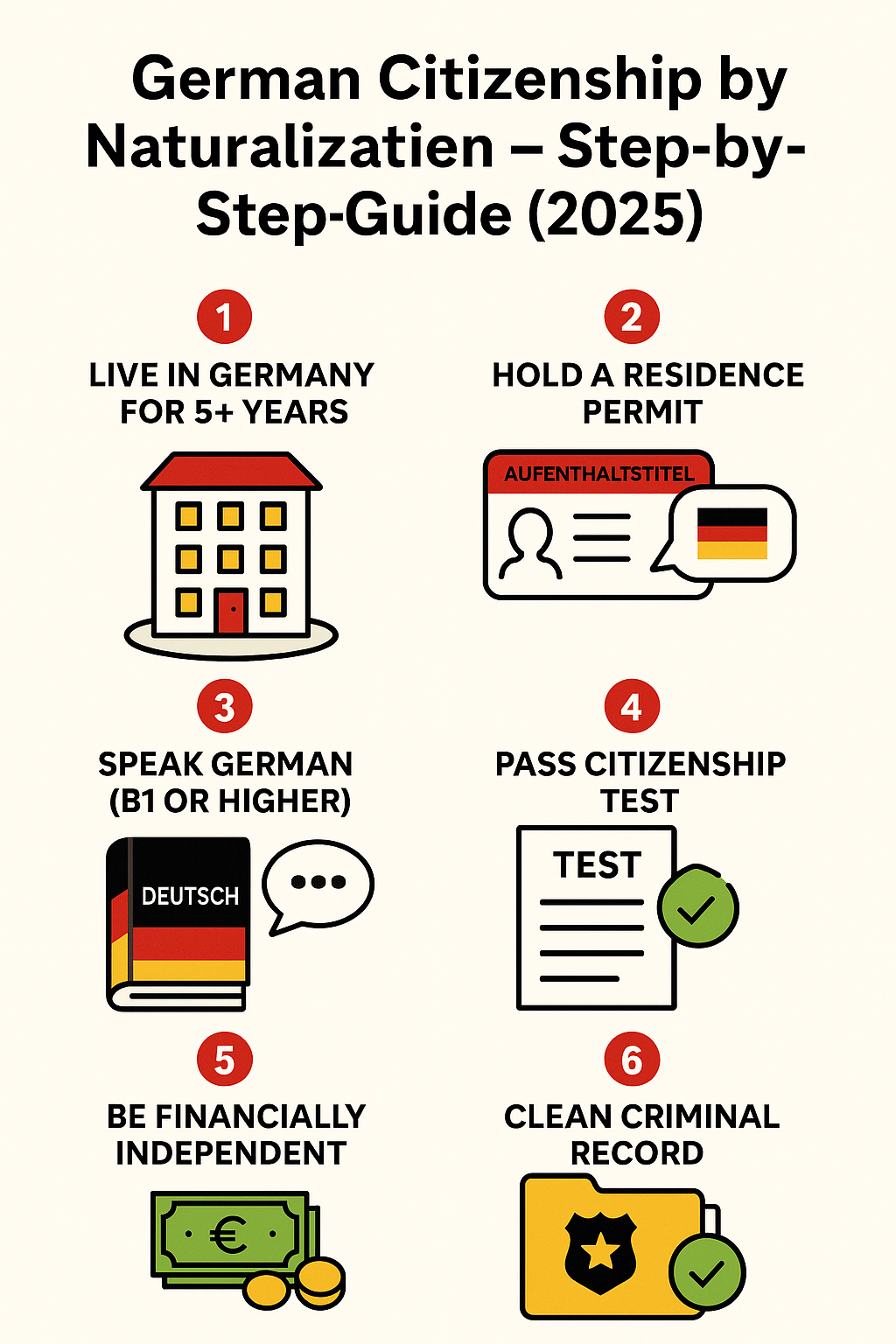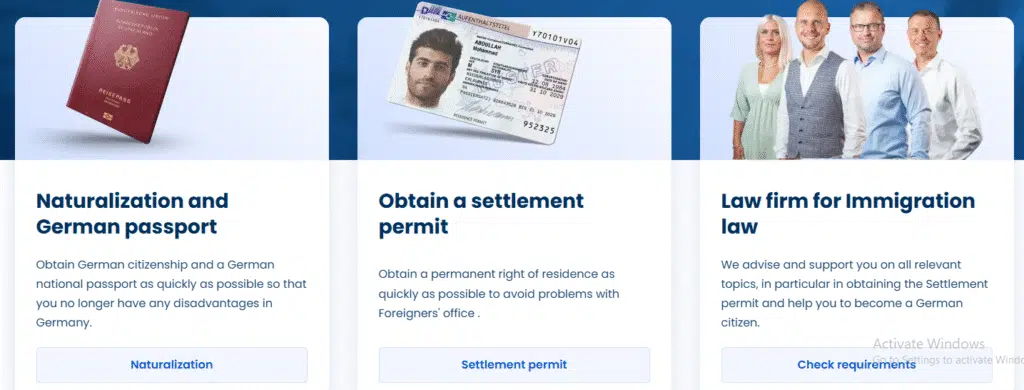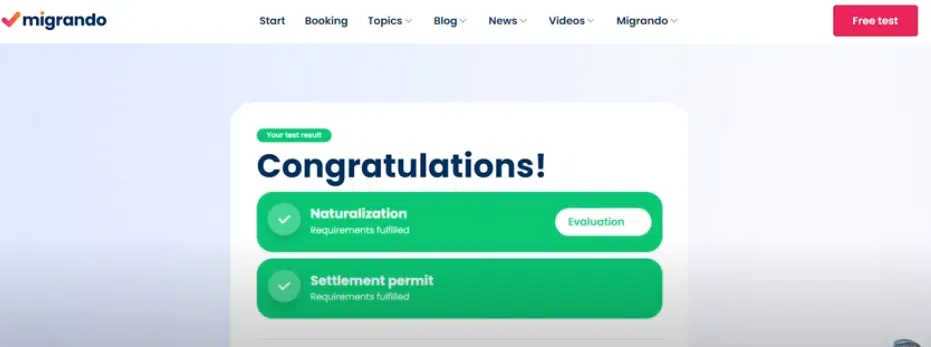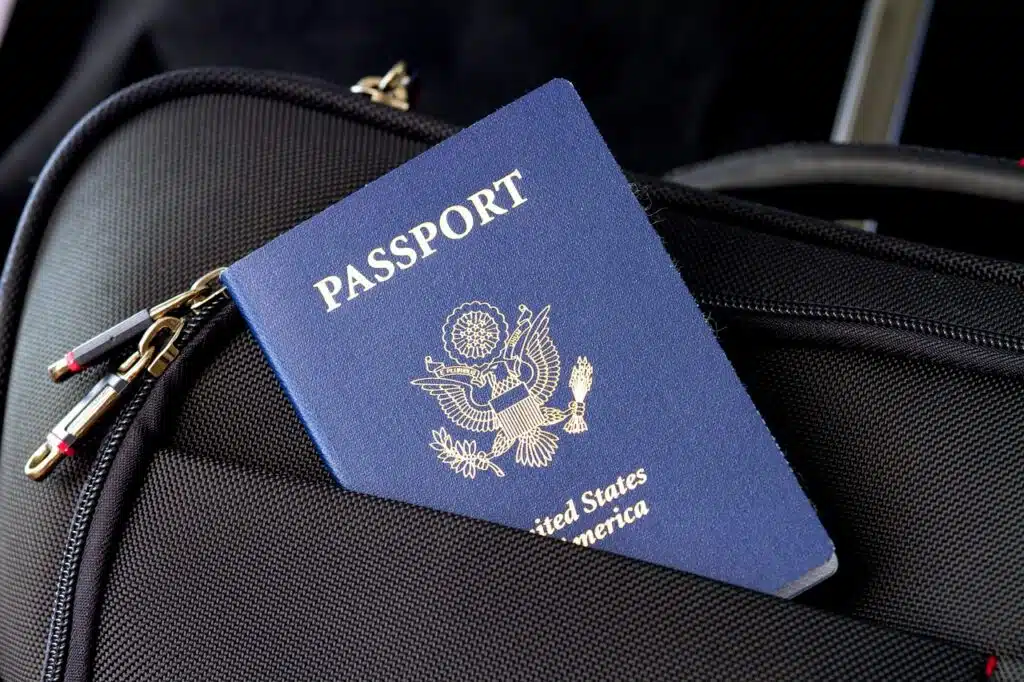Dreaming of calling Germany home, not just in spirit, but legally, on paper, with all the rights that come with it? You’re not alone. In 2026, German citizenship is more accessible than ever, whether you’re here through work, family, love, or heritage.
Hi, I’m Lucas, and I didn’t just read about it. I lived it. After five years in Germany, I proudly became a citizen. I know exactly how overwhelming the process can feel the forms, the requirements, the waiting. But I also know how doable it is if you know the right path.
In this guide, I’ll show you exactly how you can get German citizenship in 2026, step by step. Whether you’re applying through naturalization, descent, birth, marriage, or reclaiming lost citizenship, this post is packed with everything you need.
Main Pathways to German Citizenship
Germany has quite a number of legal pathways to citizenship, all with their own needs. The most usual ones are:
- Naturalization (after long-term residence)
- Citizenship by birth in Germany
- Citizenship by descent (German parent or grandparent)
- Citizenship through marriage to a German
- Citizenship by reintegration (for former citizens or descendants)

Naturalization
When you have been residing in Germany for a period of time and you have a valid residence permit, this is the surest way of attaining citizenship. That is how I acquired German citizenship.
Requirements for Naturalization in 2026
- You have lived in Germany for at least 5 years legally.
- You are a legal resident (not through a visa only).
- You are assimilated into the German culture:
- Speak at least a B1-level German.
- Passed the German citizenship test.
- You’re financially independent (no welfare or unemployment benefits).
- Your criminal record is clean.
- You uphold the democratic values of Germany.
- You relinquish your former citizenship.
Dual Citizenship in 2026
There is greater tolerance towards dual citizenship. In most cases, you will be able to retain your original nationality. No longer being required to surrender your passport of birth so as to become German.

Citizenship by Birth in Germany
Were you born in Germany? Then listen up, you might already qualify.
You qualify if
- You were born in Germany
- At least one parent had legally lived in Germany for 5+ years
- That parent had a permanent residence permit at your birth
Under the 2024 reforms, children in this category can often keep dual nationality for life. This is huge because previously, many had to choose at age 18.
If you’re a parent, and your child was born in Germany, this is a gift worth understanding fully.
Citizenship by Descent
Have German parents or grandparents? You might already be a citizen and not even know it.
Who qualifies?
- You were born to at least one German parent
- Your parents were married or legally recognized at your birth
If your parent lost citizenship due to Nazi-era persecution or discriminatory laws (like women losing citizenship for marrying foreigners), you can reclaim citizenship under Article 116 of the Basic Law.
Citizenship Through Marriage to a German
Marrying a German doesn’t automatically make you German. But it helps.
Key Conditions
- You must be married for at least 2 years.
- You must have lived in Germany with your spouse for at least 3 years total.
- All other naturalization requirements still apply:
- B1 German.
- No criminal record.
- Financial independence.
Reintegration for Former German Citizens
If your family lost German citizenship decades ago, there is a route for you. Germany now allows former citizens or their descendants to reclaim citizenship in specific cases.
Common Situations
- Your ancestors lost citizenship before Germany allowed dual nationality.
- Your family emigrated and had to renounce citizenship.
- Women who lost German citizenship by marrying foreign men before 1953.
- Victims of Nazi persecution or discriminatory Nazi-era laws.
What you need
- Proof of past German citizenship in your family.
- Documentation of how/why it was lost.
- Proof of family ties to that person (birth certificates, etc.)
You don’t need to live in Germany to reclaim citizenship this way. Many expats in the U.S., UK, and Latin America have successfully reclaimed German citizenship through their ancestry.
Where to Apply for Citizenship in Germany
You need to apply through your local Einbürgerungsbehörde (Naturalization Office). Every state and city has its own process, but here’s a general outline:
- Go to migrando website.

- Go to neuralization.

- Receive an application form and checklist.

- Submit all documents either in person or digitally.
- Await processing and attend any interviews if required.

What Documents You’ll Typically Need
Getting your paperwork in order can feel like climbing a bureaucratic mountain—but it’s manageable if you’re prepared.
Commonly Required Documents
- Valid passport.
- Birth certificate (and those of your parents, if applying by descent).
- Proof of legal residence in Germany (Meldebescheinigung).
- Residence permit.
- German language certificate (B1 or higher).
- Integration course certificate (if applicable).
- Proof of financial independence (salary slips, tax records).
- Clean criminal record certificate.
- Proof of passing the German citizenship test.
Your local authorities may ask for translations or apostilles. Be sure to confirm with your Ausländerbehörde in advance.
German Citizenship Test
To become a citizen, you need to pass a test that proves your understanding of German society, laws, and democratic values.
The Test Includes
- 33 multiple-choice questions
- Topics: German history, politics, culture, legal rights
- 17 correct answers required to pass
You can find official sample questions online from the Bundesamt für Migration und Flüchtlinge (BAMF). I personally used their mock exams for practice and passed on my first try. If you’re nervous, take a citizenship consultation; some are even free.

How Long Does the Process Take (and What to Expect)
Timeline
- Gather documents: 1–3 months (depends on how organized you are)
- Application submission: Immediate (once ready)
- Processing time: 6–12 months on average
What Happens After Submission
- You’ll get a confirmation letter
- Your documents are reviewed
- You may be called for an interview
- If approved, you receive your naturalization certificate (Einbürgerungsurkunde)
- You must attend a citizenship ceremony and swear allegiance to the German Basic Law
It’s official from that moment. You’re German.
FAQs About German Citizenship
Can you hold dual citizenship in Germany in 2026?
Yes, in many cases, especially after the 2024 reforms. Check your specific country’s agreement with Germany.
Is German citizenship permanent?
Yes. Once granted, it’s yours for life unless you voluntarily renounce it or commit serious fraud.
Can you lose the German Citizenship?
Rarely. But fraud, terrorism, or posing a national threat are grounds for revocation.
Final Words
The journey to German citizenship isn’t just about paperwork, it’s about building a future with freedom, stability, and belonging. Whether you’re working, raising a family, or chasing a new beginning, Germany offers you more than just residence; it offers you a real home.
I’ve been through every stage of this process, from the stress of documentation to the joy of finally holding my citizenship certificate. And if you’re here reading this, you’re already ahead of most. You’re informed. You’re determined. You’re ready.
Bookmark this guide, share it with others on the same path, and start today.


